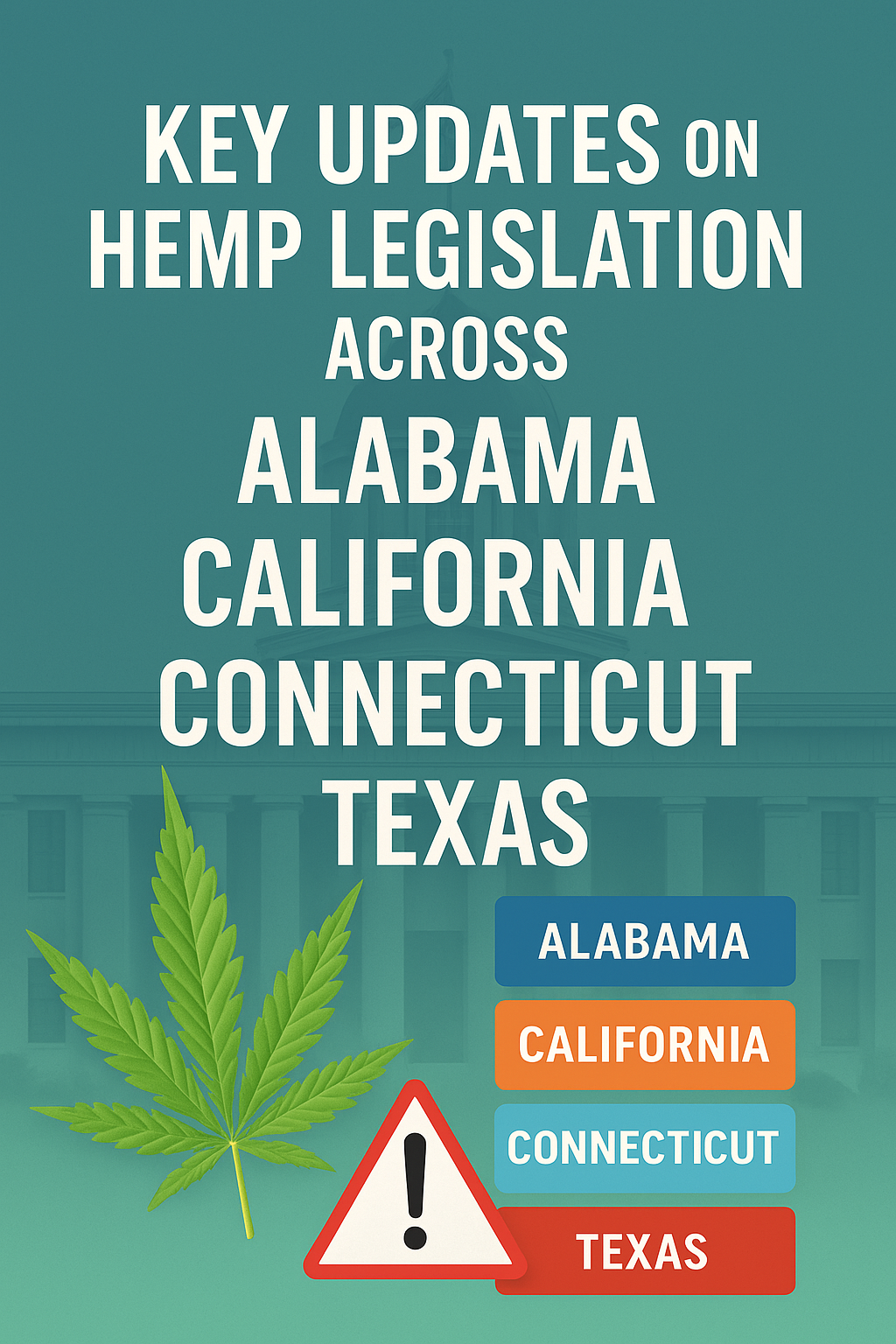Critical Updates
News

AHAA Weekly Policy Report: January 28th, 2026
on Jan 28 2026
The fourth week of 2026 shows sustained legislative intensity as states continue positioning themselves ahead of the November federal hemp deadline. PolicyNote tracked 94 active policy items this week across multiple jurisdictions (38 hemp, 49 marijuana, 3 farm bill, 4 industrial hemp).

AHAA Entering 2026: Building a Movement Hemp Has Never Had Before
on Dec 30 2025
After years of fragmented responses to regulatory threats, the sector finally has what it's always needed: unified communication, advanced research partnerships that give lawmakers credible data, and advocacy infrastructure capable of fighting at both state and federal levels simultaneously.

The Hemp Industry Just Got Hit, and We Have Days to Respond
on Nov 12 2025
Lawmakers slipped new language into a federal spending bill that could ban most hemp-derived products—the very products that built the modern hemp economy, like Delta-8 and Delta-9 gummies, vapes, and infused drinks.

The President Acknowledges Hemp: A Step Forward, But the Fight Continues
on Oct 07 2025
Quick Answer: The American Healthy Alternatives Association (AHAA) welcomes any public acknowledgment of hemp’s role in American healthcare and the economy. President Donald Trump’s recent mention of hemp is progress: it shows the issue is breaking through at the highest political levels. But while this visibility matters, we must proceed with caution. The fight to protect hemp from federal restrictions is far from over, and AHAA’s advocacy remains critical in shaping the path forward.
Key Takeaways
Trump’s video marks progress: hemp is part of the national conversation.
Public awareness is increasing, but harmful congressional proposals remain active.
The hemp market has grown from $200M in 2020 to $3.5B in 2024 (Brightfield Group).
Multiple threats—from Farm Bill amendments to appropriations riders—could wipe out most hemp products.
AHAA is leading efforts in Washington DC to ensure regulation protects access instead of banning products.
Historical Context: From the 2018 Farm Bill to Today
Historical Context: Hemp’s Journey to the Spotlight
The 2018 Farm Bill legalized hemp and sparked rapid industry growth, building a $3.5 billion marketplace by 2024 according to Brightfield Group. But ever since, lawmakers and regulators have pushed back. Proposals like the Mary Miller Amendment and appropriations riders have sought to redefine hemp in ways that would ban most cannabinoids. AHAA and industry allies mobilized to stop these threats, generating thousands of constituent messages to Congress.
Why We Must Proceed With Caution
While it is progress to see hemp acknowledged publicly, that visibility doesn’t guarantee safety for the industry. In fact, it can invite renewed scrutiny and political maneuvering. Agencies like the FDA and DEA continue to create uncertainty, refusing to regulate CBD as a dietary ingredient and attempting to stretch the definition of THC beyond what Congress wrote in 2018.
Court rulings in the Ninth Circuit and Fourth Circuit have pushed back, affirming that hemp-derived products remain legal under the current framework. But Congress could change that with a single amendment.
The Road Ahead: The 2026 Farm Bill
The reauthorization of the 2026 Farm Bill will be the defining moment for hemp’s future. Lawmakers have already shown a willingness to slip in language that would decimate the industry. AHAA is working every day to educate members of Congress, present economic impact data, and ensure hemp is seen as an industry worth protecting.
Recognition from political figures may help, but it will not stop attempts to ban hemp products. Only continued pressure from farmers, business owners, and consumers will.
Call to Action
As political momentum builds, it’s critical to ensure lawmakers hear from the people who depend on hemp.AHAA calls on business owners, healthcare professionals, and consumers to stay engaged.
Take action today to tell Congress: protect hemp, expand access to CBD, and support sensible regulations that put public health and small businesses first.
Sources Used for This Article:
Brightfield Group Hemp-Derived THC Market Analysis 2024Ninth Circuit Hemp RulingFourth Circuit Hemp Ruling

How Texas’ SB 3 and HB 28 Could Reshape the Hemp Industry
on Apr 09 2025
Texas lawmakers are proposing two bills—SB 3 and HB 28—that could severely limit the hemp industry. From banning most cannabinoids to criminalizing online sales, these measures threaten businesses and consumer access. Learn what’s at stake and how you can take action.

Key Updates on Hemp Legislation Across Alabama, California, Connecticut, and Texas
on Mar 26 2025
Hemp laws are shifting fast across the U.S. This blog breaks down major legislative developments in Alabama, California, Connecticut, and Texas—plus how you can take action to protect the industry.
